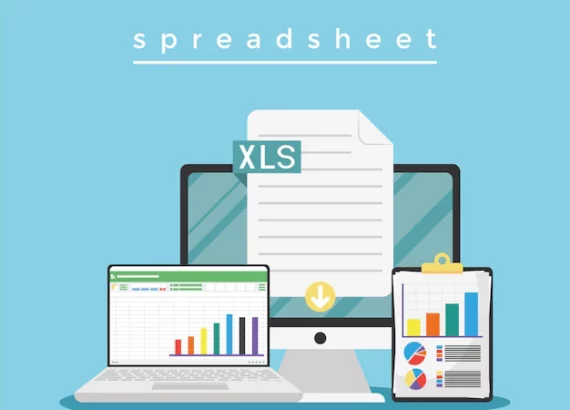Business Loans and Collateral | Bedriftslån Uten Sikkerhet

To obtain a business loan, business owners must own collateral. That collateral can include their office, storefront, warehouse, or other assets. It can also be a vehicle or piece of equipment. Most business loans are secured by an asset that has been purchased. However, if you don’t have collateral, there are still options available.
SBA Loan
If you’re looking for financing for your business, you may want to consider an SBA loan. These loans are great because they reduce the risk for lenders. Lenders don’t have to deal with the risk of defaulting on an SBA loan, and the borrower repays the lender directly on a monthly basis. There are several types of SBA loans, and the best one for your business will depend on your needs.
SBA loans can be used for working capital, expansion, and purchasing real estate, equipment, and long-term fixed assets. Generally, an SBA loan is used for working capital. However, you cannot use the loan to extend credit lines to customers. You can use the money to support export sales, invest in machinery and equipment, finance long-term expansion of export sales, or upgrade your facilities to compete with foreign competitors.
Some SBA loans are even used for real estate loans. The interest rate for an SBA loan is based on the prime rate plus a spread. All fees and charges are calculated as a percentage of the interest rate. The interest rate on an SBA loan depends on several factors, including the lender and the type of loan.
The lender may offer a variety of terms and rates, so be sure to compare these rates and terms before choosing one. Typically, a SBA loan amortized over 10 years. However, some lenders may offer a fixed rate, which won’t change over the life of the loan. For example, a 10-year SBA loan could have a three-year fixed rate and a five-year variable rate.
Before applying for an SBA loan, you’ll need to prepare basic information about your business. For example, you’ll need to supply the name of your business as it appears on your tax returns, your address, and your personal financial statement. You’ll also need to provide information on the type of business you’re operating and your estimated cash flow for the next year.
Depending on the nature of your business, you might also need to submit your business license.
Once you’ve filled out the application, the lender will assess your eligibility and ability to repay the loan. They’ll review your business experience, your equity, and any debt you may have. If you’ve previously filed for bankruptcy, this may affect your eligibility for an SBA loan.
No Collateral Required
There are some lenders that do not require collateral, but the majority does. For example, many online lenders will require a general lien on the business assets of the business owner. This can be an easier and faster way to qualify. A general lien also does not rely on the value of specific collateral, which means lenders don’t need to worry about a specific loan-to-value ratio.
Instead, they evaluate the credit worthiness of the business owner. When looking for a no-collateral loan, check the lender’s terms and conditions. Some of these lenders only require an application and one or two years of financials and tax returns. If approved, the loan will be funded in as little as a week.
While these loans are less expensive, they may have stricter requirements than traditional lenders. If you have bad credit and need a small business loan quickly, you can consider a no-collateral loan. Traditional business loans typically require collateral, usually real estate or equipment.
This is to protect the lender in the event of a default. However, you can still get a loan without collateral, as long as you have a steady business and a good credit score. Unsecured business loans (https://en.wikipedia.org/wiki/Business_loan) are available from online lenders and the Small Business Administration. However, these loans do require personal financial responsibility, and lenders will charge higher interest rates and fees than other types of loans.
It is also worth noting that some of these loans may require collateral and are subject to stricter qualification requirements. A small business loan with no collateral is a good option for many reasons. They can help a company cover the cost of doing business and allow the business owner to make large purchases.
In many cases, the funds are disbursed in a lump sum and are repaid with interest. Alternatively, other types of small business loans are available to help company’s access cash more quickly and on an as-needed basis. Another option for no-collateral business loans is accounts receivable financing, also known as factoring.
This alternative is similar to a merchant cash advance, but it provides working capital in advance on the basis of upcoming payments from customers. Essentially, you sell your open invoices to a third party, which then pays you an amount that varies from 80% to 90% of the invoice value.
Bank Loan
When it comes to business loans, most lenders require collateral. Without this, a business is likely to face higher interest rates and less favorable terms. Collateral is an asset that you pledge as security for a loan.
Because the lender has this right to repossess the asset if you default, it’s a good idea to have some tangible assets to put up as collateral. Collateral can be anything that has value. However, not all assets can serve as collateral, and some types are preferred over others. The most advantageous collateral is cash.
Other forms of collateral include securities, such as stocks, certificates of deposit, or even corporate bonds. However, the best type of collateral is something that you can liquidate quickly. Some lenders do not require collateral at all. However, many online lenders do require that you put up a general lien on business assets in return for a loan.
This makes qualifying for a business loan a faster and easier process. A lender will also assess the business owner’s creditworthiness before approving collateral, as loans for business (lån til bedrift) tend to not be collected by the banks, due to the uncertain economy. A business loan can also be secured by tangible assets, such as real estate.
When pledging assets, you should make sure that you have the title to the asset as collateral. If you default on the loan, the bank can use this asset to recoup its losses. Personal assets can be anything from an owner-occupied home to a vehicle. Other forms of collateral include accounts receivable and future earnings.
Online Lenders
Business loans from online lenders are typically fast and simple to apply for. They can provide funding in as little as 24 hours. They also typically offer simplified application processes that require minimal documentation. Unlike traditional lenders who rely on manual review processes, online lenders use technology to underwrite business loan applications.
In some cases, lenders may require collateral, such as the business’s financial statements. Alternative lenders, which do not use banks or third-party loan brokers, are great sources of business loans. They are quick to approve applicants and have relaxed requirements.
In general, any financing you receive outside of a bank is classified as an alternative loan. Among the most popular types of alternative business loans are SBA loans, term loans, and lines of credit. The main difference between a secured loan and an unsecured loan is the collateral. A secured loan requires collateral that the lender can repossess if you default on the loan.
This can be your building, your equipment, accounts receivables, or even your property. In contrast, an unsecured loan does not require collateral. However, many lenders still require a personal guarantee to give you the loan. While this may increase your chances of getting the loan, it will not change your obligation to pay back the loan.




No Comments